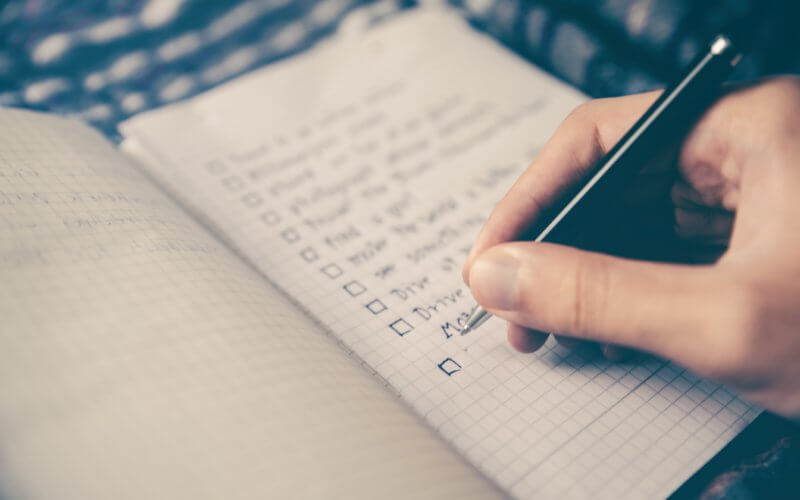Resilience and sleep: The art of bouncing back

When life veers suddenly off the straight road and into the unknown, resilience is our ability to adapt to this change in circumstance and continue onward. In all aspects of life from the workplace to the home, resilience is an important life skill. One that can be built up over time. What’s more studies have shown that resilience and sleep are more linked than previously thought. In this article, we’ll take a look at what resilience is (and isn’t), the link between resilience and sleep and a few practical tips to help you take care of both.
Resilience: what it is (and isn’t)
The APA defines resilience as “the process of adapting well in the face of adversity, trauma, tragedy, threats or significant sources of stress”. Resilience is a person’s capacity to “bounce back” or “weather the storm.” It’s how someone adapts to difficult situations and circumstances such as relationship problems, trouble at work, health problems, and natural disasters. When we start to think of resilience like this, we can start to see how and why, resilience has started to become such a prized quality, a psychological superpower.

It goes without saying that resilience is not a superpower. It doesn’t promise immunity from things going awry (in fact resilient individuals have often had more than their fair share of painful experiences). Resilience isn’t about going into Terminator-mode and feeling nothing at all when things get difficult or painful. The emotional response is still there, it’s just not in the driving seat. Resilient individuals traverse difficult, painful situations on surer-footing, accepting the things they can (and cannot) control and leveraging the situation as an opportunity to grow, adapt and learn.
Fall down seven times, get up eight- Japanese proverb
Of course, like a lot of psychological concepts, resilience can seem a little intangible at first glance, an either-you-have-it-or-you-don’t genetic trait. In reality resilience is a skill that involves thoughts, behaviors and emotions, and like all skills, it can be learned. With practice, time, actions and sleep, we can build resilience much like working out at the gym can build muscle.
Resilience and sleep
As we previously explored, sleep has a huge impact on our mental health, resilience and sleep are no different.
The nervous system
In his 2005 book The Resiliency Advantage, Dr Al Siebert notes how 3 bases of resilience (self-esteem, self-concept, and self-confidence) are rooted in different nervous systems (autonomic, central and somatic respectively). And sleep is important for the healthy functioning of our nervous systems.
Stress
Another point where resilience and sleep come into play is stress. Sleep can drastically alter how we react to stress–poor sleep can make small stressors seem more insurmountable than they actually are.

Neuroplasticity
While we sleep, our brains are highly active, performing essential maintenance, like cleaning. These clean-ups can strengthen our neuroplasticity. In other words, the brain’s ability to build new connections to adapt and change.
Regulation of emotions
Earlier we talked about how resilience means emotions aren’t in the driving seat. This is actually pretty hard for sleep-deprived people as sleep is essential for the regulation of emotions. Brain scans of sleep-deprived people have shown a decrease of activity in the parts of the brain responsible for rational decision-making and an increase in activity in the parts of the brain responsible for impulse and reactivity.
Ability to learn
Sleep plays a key role in how we process new information and organize memories, which is essential not only for our performance day to day but also our capacity to be resilient.
Resilience and sleep in the military
Resilience is key in the military, where the ability to cope, adapt and recover from extremely stressful situations is vital.
A 2015 study linking resilience and sleep in service members discovered that 9 in 10 service people are considered ‘poor sleepers’ post-deployment, and discovered that these sleep problems were a key symptom or precursor to numerous psychological and physical health issues. The paper makes a very valid point that: “healthy sleep behaviors may have implications for enhancing resilience to current and future stressors and adversities”.
The paper goes on to highlight the need for the promotion of healthy sleep for resilience across the military. There are more and more studies now highlighting the importance of sleep for resilience as an essential part of psychological and physical health, in both military and civilian populations.

Resilience and sleep: 10 tips
As we mentioned, resilience can be built up over time, much like a muscle. And your sleep is a great place to start. Here are some tips to help you work on your resilience and sleep:
- Find the amount of sleep that works for you and stick to a regular sleep schedule.
- Try to maintain healthy sleep habits like avoiding screens before bed, keeping your room cool and dark.
- Remember the body and the mind are connected. Look after yourself by eating well and working out.
- Practice mindfulness as well as meditation techniques and cognitive exercises to help you stop over-thinking before bedtime.
- Build genuine connections with others- individuals or groups.
- Be proactive and move towards your goals.
- Help others.
- Embrace the self-discovery and learning opportunities that change can bring.
- Keep things in perspective.
- Stay hopeful for the future while learning from your past.

Main takeaways
What is resilience?
Resilience is a person’s capacity to ‘bounce back’ from adversity. It’s how well you adapt to difficult or painful situations. It is a skill that can built up over time.
How are resilience and sleep linked?
Good quality sleep has been shown to increase resilience, making it easier to copy with stress and regulate our emotions. It even impacts how well our brain adapts and how we’re able to process emotion. All important elements that contribute to resilience.
Can I become more resilient?
Yes, absolutely. Resilience is not a genetic trait, it’s a skill that can built up with time and willingness.
Why is resilience important?
Resilience comes into play in all aspects of life- it’s the ability to adapt to from the day-to-day like coping with work pressure or sticky family situations to bigger more dramatic events like trauma, health issues, natural disasters.
Discover your sleeper profile with this sleep test
Start



